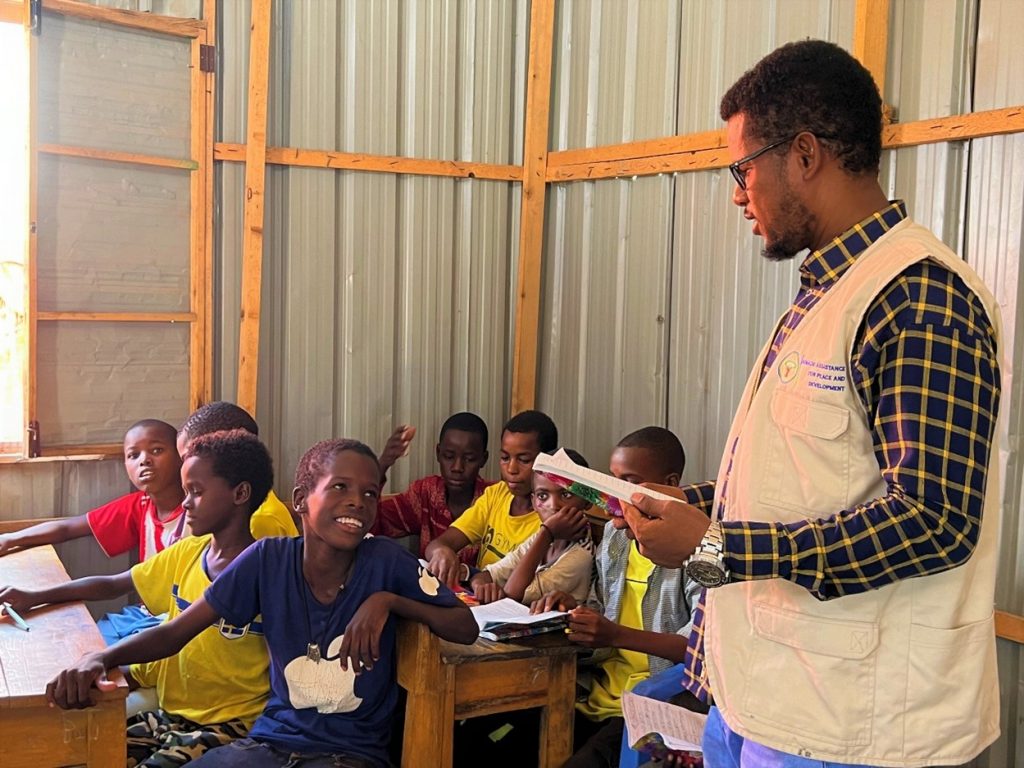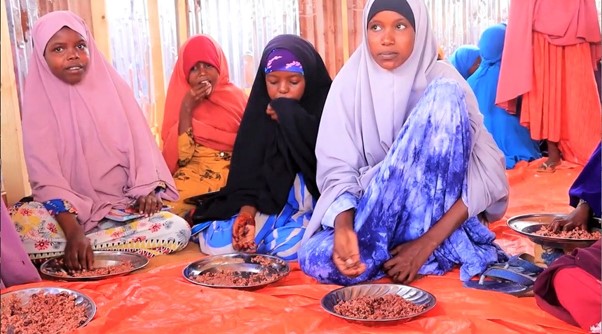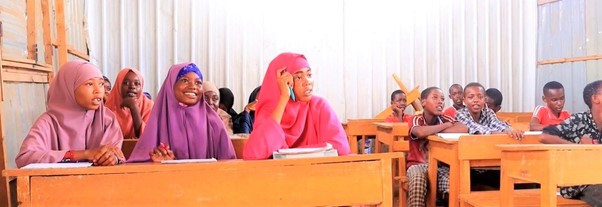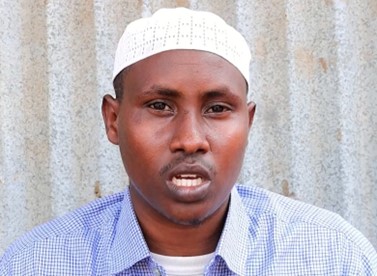
Somalia Overview
Somalia is one of the Horn of Africa countries facing the most severe humanitarian crisis. More than half of the country’s population continues to grapple with severe food insecurity due to five consecutive failed rainy seasons and one subsequent below-average rainy season. In the second quarter of 2023, the country experienced flash floods caused by the Gu rains and rivers originating from the Ethiopian Highlands have compounded the impact of the drought crisis by causing widespread destruction of the already struggling smallholder farms in many farming districts. Somalia’s humanitarian situation is further exacerbated by incidences of resource-based conflict, insecurity from activities of the Al Shabaab, widespread displacement of the affected persons in search of food and water and soaring food prices also affected current social economic global challenges.
According to a UNICEF report published in April 2023, 4.8 million children are currently out of school across Somalia, while 3.5 million require emergency child protection services. Poverty, drought, and conflict have greatly contributed to reduced access to quality education for many children in Somalia, especially so adolescent girls. An already weak educational system also places children’s protection at risk, exposing them to early domestic work, early marriages, early pregnancies, female genital mutilation, child labour, recruitment to militias etc.
Global Giving: School Feeding Programme
The availability of at least a meal daily remains an unattainable reality for many children. School feeding programmes are part of the determining factors in increasing school-aged learners enrolments and even retention. Nomadic Assistance for Peace and Development (NAPAD) with funding from Global Giving, implemented a two months school feeding program in Mustaqim and Horseed primary schools situated within the IDP camps of Deynille district, Banadir region, Somalia. The school feeding initiative aimed to address the retention in safe learning spaces challenges faced by the 724 children of school-going age already enrolled in the school and affected by drought. 47% of these are girls. The intervention ensured that the learners who would have otherwise withdrawn from school and engaged in either child labour or early marriage were retained in school and ensuring them to receive nutritious meals in their respective schools.

“I enjoy having the food we are given at school together with my friends,” reported Nasteho Mohamed. Nesteho Ali Mohamed is a class five student, who joined Horseed primary school in 2019. She reported that many times she would come to school hungry since there was no food at home and when she returned home most afternoons, she was not sure she would find something to eat. Hers is a testament to the harsh reality experienced by numerous children residing in IDP camps in Somalia.
The Impact

“Previously, many children did not attend school as they had to fend for themselves. They often worked as shoe shiners or did other menial jobs. However, with the introduction of regular school meals, the situation gradually changed. The meals not only alleviated the learner’s hunger but also encouraged consistent attendance, leading to improved school attendance rates. The students’ energy levels have been revitalized, and this positive change is evident in their improved concentration and increased participation in class activities.” Reported Teacher Abdi Hakim.
The school feeding program has also emerged as a catalyst for transformative change within the IDP community. It has alleviated the financial burden faced by parents who struggle to provide regular, nutritious meals for their children. This, in turn, has enabled them to reallocate their limited resources to other household necessities. The program’s provision of healthy meals reassured parents, knowing that their children were receiving the necessary nutrition for their growth, development, and overall health. Moreover, parents found peace of mind, knowing that their children are in a safe environment.
Additionally, the school feeding program has contributed to positive economic effects by allowing NAPAD to establish partnerships with local food suppliers. This support has contributed to boosting the local economy, further enhancing the program’s impact on the community.

The school term has recently ended and Mr. Yusuf Mohamed, the headteacher at Mustaqim School has expressed his appreciation for the impact that the school feeding program has had on the students, staff, and the entire school community. He observed a remarkable transformation in the overall well-being and academic performance of the students.
“As we look ahead, we remain committed in our dedication to sustaining the positive momentum created by the school feeding program. We hope that the program will continue once we reopen the school.” Yusuf emphasized.
